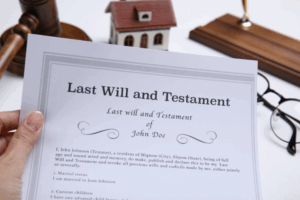At death, there is a little-known tax benefit that the federal government provides. It is an adjustment to tax basis and it can have a profound effect on the taxation of the assets owned at death. This article discusses two kinds of tax that apply at death: the estate tax and the step-up in tax basis.
Most Americans fear the estate tax. In reality, according to the Urban-Brookings Tax Policy Center, in 2013 less than 1% of people who died actually paid any federal estate tax. And, since the Trump tax cuts which increased the threshold for people subject to the estate tax, the current figure is likely much lower.
The savvy reader knows that, in Washington state, the federal estate tax is not the only game in town. Indeed, Washington is one of a few states that imposes its own estate tax. But, it only applies to estates that are valued at roughly $2.2 Million. As one might imagine, the reality is that very few people die with that kind of money. And, for those “unfortunate” individuals that do need to pay either the Washington estate tax (by having more than $2.2 Million) or the federal estate tax (by having more than about $11 million), you might find some solace in the knowledge that a good estate planning attorney can help to reduce or eliminate that tax burden.
So, on the one hand, the reality is that most people will pay no estate tax. On the other hand, the estate tax is still a feared and misunderstood tax.
Oh, but the tax code does provide a gift that does not receive the appreciation it is due. Though most fear the estate tax (which is likely inapplicable to their estate), most don’t know about the huge tax benefit that applies to everyone: the step up in tax basis.
First, a primer on capital gains income tax. If a person buys a building for $100,000 and ten years later sells the building for $300,000, then that person has $200,000 of taxable gains subject to the capital gains tax (around 15% but can be as high as 23.8%). The tax is assessed on the difference between the sale price (fair market value) and the basis (simplistically- the amount paid for the asset).
The tax code provides a boon for individuals with capital assets (think stocks, land, buildings, real estate, etc.). That is, at death, the asset gets a new basis equal to its then current fair market value.
Taking the example above of the building—if it is sold after death, it gets a new tax basis equal to the then current fair market value of $300,000. Accordingly, when it is sold for $300,000, the taxable gain is zero ($300,000 sale price minus the new $300,000 fair market value tax basis). This means there will be zero income tax assessed on the sale of the capital asset after death. Notably, the step-up in tax basis does not apply to so-called Income in Respect of a Decedent (for example, qualified retirement accounts).
A more robust example will provide further clarity. Let’s assume an individual owns a piece of land purchased in 1980. It was purchased for $100k. Today it is worth $3 million. For simplicity, assume that is her only asset. If the individual sold the land before death, then she would pay almost $700k in income tax. Likewise, if she gifted the land to her children before death, they would take mom’s tax basis and would pay a similar tax upon sale. If instead, the individual died with the asset, two important things would happen.
First, she would have to pay estate tax (assuming she was not able to engage in any estate tax planning). The approximate estate tax due would be $80,000. But, then, when the heirs sold the asset, the second important death tax issue is presented. The land would be granted a new tax basis equal to its then fair market value of $3M. This means that there would be zero income tax assessed. So, even though the estate tax was paid, the net tax savings to the heirs (all other things being equal) would be about $600k.
This is one reason, among others, that the plan to gift assets during life to avoid the estate tax needs to be balanced against the loss of other potentially applicable tax benefits. As always, a professional estate planner is best suited to advise you on your particular situation.
390833-2
- Licensed, not practicing.
The opinions voiced in this material are for general information only and not intended to provide specific advice or recommendations for any individual or entity. This information is not intended to be a substitute for specific individualized tax or legal advice. We suggest that you discuss your specific situation with a qualified tax or legal advisor.
Securities offered through LPL Financial, member FINRA/SIPC. Investment advice offered through Cornerstone Wealth Strategies, Inc., a registered investment advisor and separate entity from LPL Financial.












